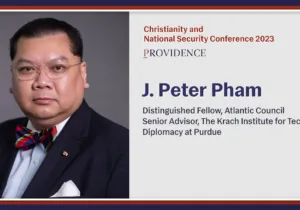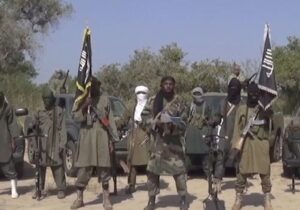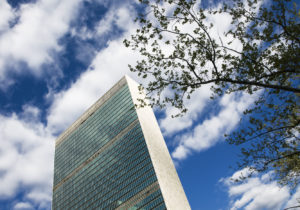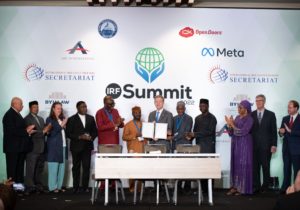Recently, Nigerians went to the polls to elect a new president. Voters faced violent attacks from thugs and even terrorists in addition to withstanding long delays due to election officials who showed up hours late to their polling locations. The ones who made it to the polls were the lucky ones—many were unable to even travel because of fuel shortages and chaos caused by a new currency system.
But for Nigerians, these are not new difficulties. Violence is a daily fear across the entire country, which has the largest population and economy in Africa. Corruption and incompetency on the part of government is expected. Nigerians are in desperate need of political change, and as proof of this, voter registration numbers prior to the election broke records. But once again, daily life in Nigeria conspired against the average person.
As to be expected given this degree of societal chaos, legal disputes erupted immediately between the declared winner of the election, Bola Tinubu, and his challengers, with all sides claiming victory. Follow-up gubernatorial elections were filled with brutal instances of ethnic-based violence. The post-election turmoil Nigeria now faces is but a reflection of the deep-seated tensions that plague our society.
With daily life in Nigeria so uncertain for the average citizen, and human rights so flagrantly and regularly abused, the harsh reality is that we are far from a functioning democracy.
I speak from my own experience as a human rights lawyer in Nigeria. In Northern Nigeria, twelve states have Sharia-based criminal codes that mandate the death penalty for any Muslim who says something that could be construed as insulting to the Quran or the Prophet Muhammad. These blasphemy laws are in flagrant violation of the Nigerian Constitution, as well as international treaties we have signed. And yet in our democracy, does anyone do anything to stop these laws?
I have recently represented two individuals convicted for their alleged blasphemy. One was Omar Farouq, a minor who was accused, convicted, and sentenced to 10 years in prison for alleged blasphemy against Islam. Only after years of international outcry was he freed.
But the other young man I represent, Yahaya Sharif-Aminu, still sits in prison, now for three years. His “crime” was sending two WhatsApp audio messages with lyrics he composed describing the beliefs of his particular sect of Sufi Islam. Those who took offense to them burned down his home, and he was swiftly convicted without a lawyer and sentenced to death by hanging.
We were able to secure a dismissal for Omar, but the same day that dismissal came down, Yahaya was sent back for a retrial instead. Now we are appealing to the Supreme Court of Nigeria, in the first case of its kind, to overturn these vile and unconstitutional laws, and save Yahaya’s life.
Nigeria’s Constitution is supposed to protect freedom of expression and freedom of religion. We are not supposed to have any religion as an “official” religion in our federal and state governments. We have joined international treaties both with the United Nations and the African Union that are meant to protect individuals’ abilities to freely share their beliefs and live out their faith.
But if Nigeria does not honor these commitments in our actions, then these are just words on pieces of paper. If the international community does not speak out, then our leaders will get away with regularly violating our rights.
How can we say we live in a democracy that respects its citizens when such laws are on the books? How can Nigeria call itself a democracy when individuals like Deborah Emmanuel Yakubu are slaughtered by their own classmates for discussing their faith, and entire churches are gunned down while at worship? I could speak of many more human rights abuses of all sorts.
Once the legal dust of this election settles, the yearning of Nigerians for peace and justice will persist, stronger than ever. Our officials can no longer treat governance as business as usual. And I pray that the international community will come to our aid. Individuals like Yahaya Sharif-Aminu, and indeed all Nigerians, desperately need change now more than ever.






 Sponsor a student for Christianity & National Security 2024
Sponsor a student for Christianity & National Security 2024